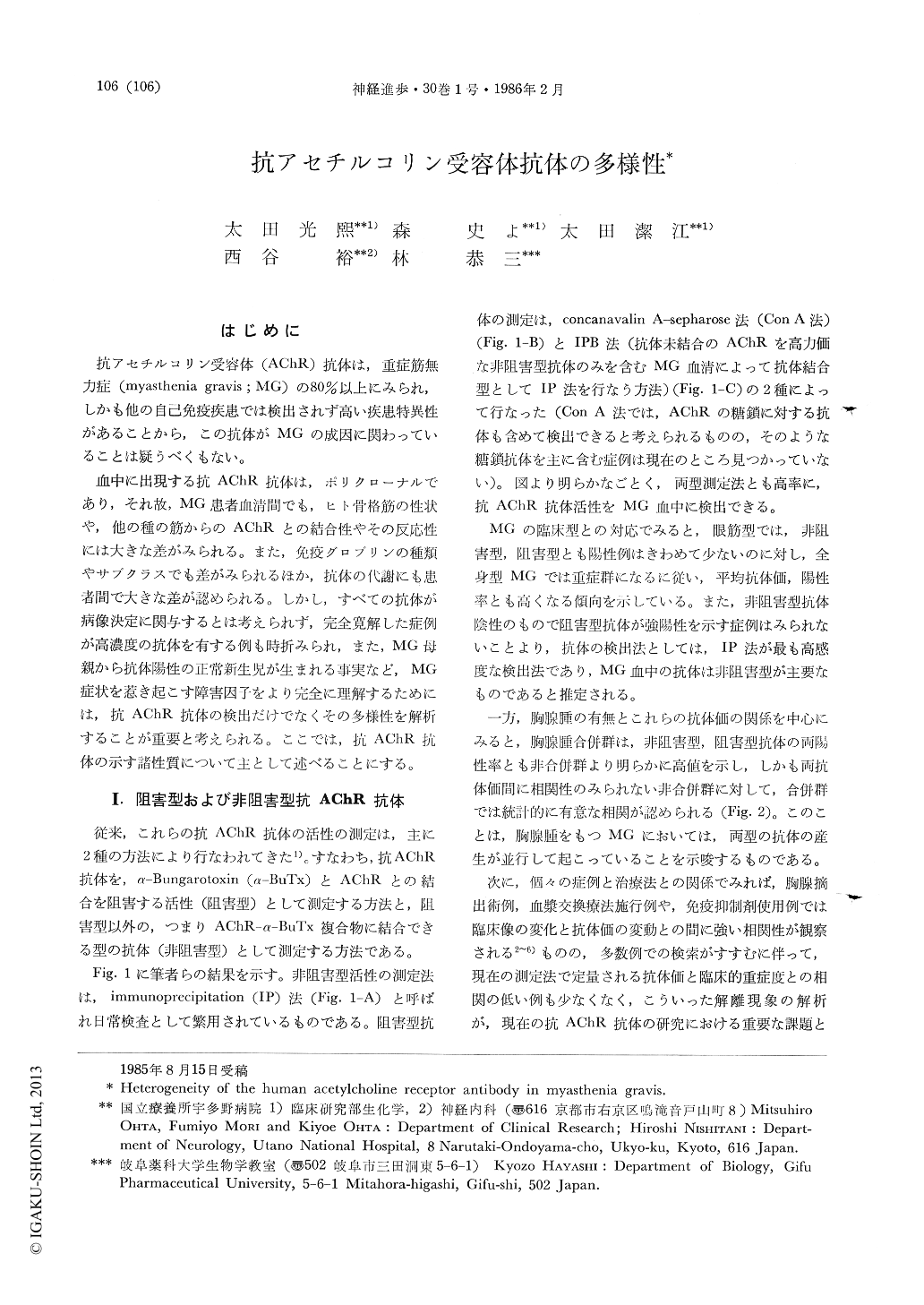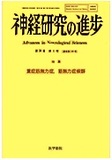Japanese
English
- 有料閲覧
- Abstract 文献概要
- 1ページ目 Look Inside
はじめに
抗アセチルコリン受容体(AChR)抗体は,重症筋無力症(myasthenia gravis;MG)の80%以上にみられ,しかも他の自己免疫疾患では検出されず高い疾患特異性があることから,この抗体がMGの成因に関わっていることは疑うべくもない。
血中に出現する抗AChR抗体は,ポリクローナルであり,それ故,MG患者血清間でも,ヒト骨格筋の性状や,他の種の筋からのAChRとの結合性やその反応性には大きな差がみられる。また,免疫グロブリンの種類やサブクラスでも差がみられるほか,抗体の代謝にも患者間で大きな差が認められる。しかし,すべての抗体が病像決定に関与するとは考えられず,完全寛解した症例が高濃度の抗体を有する例も時折みられ,また,MG母親から抗体陽性の正常新生児が生まれる事実など,MG症状を惹き起こす障害因子をより完全に理解するためには,抗AChR抗体の検出だけでなくその多様性を解析することが重要と考えられる。ここでは,抗AChR抗体の示す諸性質について主として述べることにする。
The basic abnormality in myasthenia gravis (MG) is a reduction number of acetylcholine receptors (AChRs) at neuromuscular junctions, which causes for the impairment of neuromus-cular transmission and results in the muscle weakness and fatigability. Antibody binding to AChR (blockade of ACh), producing increased degradation of the AChR (antigenic modulation),altered AChR resynthesis, and complement-mediated cytolysis to the postsynaptic membrane (reduction in the number of functional AChR and morphological change of the membrane) have all been demonstrated.These data indicates that the pathogenesis of MG involves an atuo-immune attack directed against AChRs.
The detection in the serum of anti-AChR anti-body is almost specific and highly sensitive in confirming or suspecting the diagnosis of MG. These antibodies are reported in the serum of more than 80% of patients with MG and virtually absent in normal controls or in patients with other autoimmune diseases. Moreover, these antibodies have an ability of reproducing the characteristics neuromuscular abnormalities of the disease when they are passively transferred to laboratory animals.

Copyright © 1986, Igaku-Shoin Ltd. All rights reserved.


